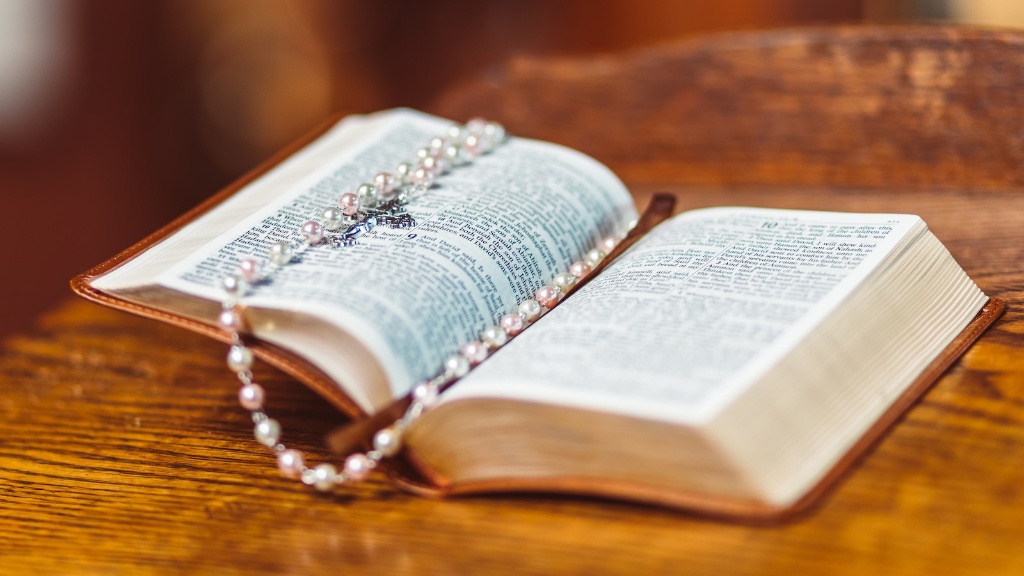Origin and Biography of Cain
Cain is a figure in the Bible who is often remembered for being the first murderer. But who is Cain in the Bible? According to the Bible, Cain was the firstborn son of Adam and Eve, who had received the gift of life directly from God. Cain’s birth was therefore very special, as he was believed to be the first human being born of man and woman. The Bible records that Cain was a farmer, and his younger brother Abel was a shepherd. The siblings grew up together, even though they had vastly different occupations.
In the Bible, Cain is portrayed as being jealous of Abel and his accomplishments. He saw his brother’s offerings to God as being much more accepted than his own. This became the driving force for Cain’s anger. Later, as a result of his ever-growing rage, Cain murdered his brother Abel in what some Bible scholars suggest was a fit of rage.
What Caused Cain To Murder Abel?
The exact cause of Cain’s violent act is unknown. Some speculate that his rage was due to his jealously of Abel’s relationship with God. Others suggest that Cain was averse to Abel’s positions of authority in the family, while still others contend that his actions were motivated purely out of envy. Whatever the actual cause, the Bible portrays Cain as being motivated by such deep resentment and anger that he kills his brother.
Furthermore, the Bible gives no clear answer as to whether Cain’s actions were premeditated or a crime of passion committed under extreme duress. Regardless, it is clear that Cain was so disillusioned by the treatment he reportedly received from God, his parents and even his brother, that he could no longer contain his rage and resorted to murder.
Cain’s Punishment
After Cain murdered Abel, the Lord made Cain a sign of warning to future generations. God, who was aware of Cain’s actions, cursed him and condemned him to a life inhabited by fear. He declared: “Anyone who kills Cain will suffer vengeance seven times over.” This punishment, according to some scholars, was meant to serve as a warning to all those who resorted to violence and a sign of God’s disgust with Cain’s actions.
Cain was also forced to flee the area and led into exile. However, despite being in exile, the Lord did not abandon Cain. Instead, he bestowed upon him a special mark to protect him from the possible consequences of his deeds. This mark was the then-unknown symbol which later became known as the “mark of Cain”.
The Gift of Invincibility
The mark of Cain was a unique gift, both in terms of practical value and symbolic significance. In essence, the mark of Cain was a symbol of invincibility and power. It served to ensure that Cain would never be attacked or killed. If Cain was threatened or wronged, the mark would act as a physical sign of protection. The mark of Cain also represented a blessing, as it meant that contrary to all odds, Cain would survive the punishment God had laid down.
The Lord also offered Cain a second gift, in the form of a promise that he would be remembered forever. This promise was delivered in the form of words spoken by God himself: “Cursed be anyone who takes a life. But I will place a mark on Cain so that if anyone kills him, he will suffer my vengeance seven times over.” These words and promise are recorded in the Bible and stand to this day as a testament to God’s promise of protection and justice.
Cain’s Descendants
According to the Bible, Cain had numerous offspring. His sons created their own unique societies and cultures, which flourished for centuries and had a significant impact on the way we view the world. In fact, some of Cain’s descendants are even credited with the creation of metallurgy, farming and the art of wearing clothes. From Cain descended renowned historical figures, such as Tubal-Cain, Jabal, Jubal and Lamech, who helped to shape the world as we know it today.
The Legacy of Cain
Cain has left an indelible mark on the minds of readers across centuries. He is remembered for his anger, his jealousy and his deadly actions, yet he is also remembered for the gifts of invincibility and justice the Lord bestowed upon him. The Bible emphasizes the importance of atonement, redemption and forgiveness, and the story of Cain is often interpreted as a symbol of hope. While Cain acted out of rage, there is still redemption to be found in the fact that he was not completely forgotten or without mercy from God.
Reconciliation
The story of Cain and Abel is a timeless reminder about the consequences of bitterness and envy. Cain’s story can serve as a reminder of the power of reconciliation, in spite of the pain one may feel due to envy and aggression. Through studying the text, one can learn that in the end, reconciliation is possible even in times of intense pain and anger.
At its core, the tale of Cain and Abel is a story of redemption and hope. It’s a reminder that God’s mercy and love are ever-present, even in the darkest of times. The story can be seen as a reminder that no matter how grave the mistake, God’s love and forgiveness remain a source of hope.
Forgiveness
Forgiveness is a central aspect of the tale of Cain and Abel. The events of the story depict how God chose to forgive Cain, despite his grievous offense. Therefore, the story serves as a reminder of the power of forgiveness.
From the text we learn that no matter how deep the wound, we can always hope to be forgiven if we turn to God with sincerity and repentance. The concept of forgiveness propels the narrative, and in its conclusion, we can find a message of hope and redemption.
The Significance of Mercy
Cain’s story also serves as a lesson on the importance of mercy, and how the Lord bestowed mercy upon Cain in spite of his wrongdoing. This example of mercy serves as an ever-present reminder of God’s unconditional love. Furthermore, it is an outline for the merciful and compassionate nature of God, which is available to all, no matter how dire one’s situation.
The narrative of Cain and Abel demonstrates how, through mercy and forgiveness, God can bring light to even the darkest of situations. It serves as a reminder of the immense power of grace and mercy, reminding us that God will always be there to support us and forgive us, regardless of our transgressions.


